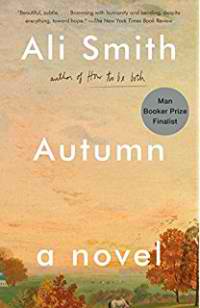The Ballad of Black Bart by Loren D. Estleman
 Monday, December 18, 2017 at 8:28AM
Monday, December 18, 2017 at 8:28AM Published by Macmillan/Forge Books on November 14, 2017
The Ballad of Black Bart is based on the celebrated stagecoach robber of the 1870s to 1880s. The novel includes some biographical detail that I presume to be accurate, although Loren Estleman admits to taking “small liberties with fact.” Still, the story is very much an imagined life, placing thoughts in the bandit’s head and recreating a personality that may or may not hew to his actual life. The novel is a literary look at an outlaw who captured the public’s imagination on the strength of two poems and good bit of audacity, the sort of thing that keeps journalists in business, particularly the yellow journalists of the time.
Black Bart was the British-born Charles Boles, although he used the pen name Charles Bolton. The novel follows Bolton to Iowa, where he marries and makes an unsuccessful attempt to live an ordinary life as a farmer, husband, and father. From there Bolton chased the gold rush to California, arriving too late to stake any serious claims. But most of the story addresses Bolton’s alter-ego as Black Bart, the nonviolent (his shotgun was never loaded, or so the novel says) stagecoach robber, who makes his way on aching feet from one robbery to another.
Apart from twice leaving behind a verse for the Wells, Fargo police to find (establishing himself as a po8 in the public imagination), Black Bart was known for his gentlemanly politeness during robberies, and for escaping on foot, leaving behind no trail to follow. As Charles Bolton, he banked his ill-gotten proceeds at Wells, Fargo (where else?) and enjoyed the comforts of fine dining, fine living, and the occasional paid company of women whose fineness the book does not describe.
Bart’s nemesis in the novel is Jim Hume, head of the Wells, Fargo police, who is also described in biographical detail, calling attention to the similarities between the two men. As with Bart, the details are carefully winnowed to explain the shape of Hume’s life without bogging down the narrative. Hume is more a meticulous detective than a gun-slinging lawman, making him a perfect fit to lead Wells, Fargo’s private police department and to track down its most elusiver robber.
The Ballad of Black Bart naturally describes some stagecoach robberies, but the descriptions are brief. The novel is less a western than it is a pair of convincing character sketches. The story is relatively brief and not as meaty as my favorite biographical western, Mary Doria Russell’s Doc, a literary examination of Doc Holliday. But while this book is comparatively slender, Estleman’s decision to trim out all but the essential details assures the vitality of those that remain. My favorite chapter follows Bart as he walks back to the Iowa town where he lived before abandoning his wife and daughters. Bart’s thoughts and actions in a few pages speak volumes about the man he became (as least as imagined by Estleman).
If you’re looking for shootouts between white and black hats, Bart’s empty gun robs the story of traditional western content. If you can be satisfied with a fictionalized examination of an acclaimed bandit and the man who tracked him, told with literary flair, The Ballad of Black Bart is a good choice.
RECOMMENDED



